Three weeks ago we went to Meghri. It’s the southernmost town in Armenia. It was my first time. Meghri has been a place that I have been wanting to visit for years, mostly because whenever I tried to proudly proclaim that I have been everywhere in Armenia, people would ask “even Meghri?” Whenever they asked that, I would suddenly feel embarrassed and I would rush to explain to them that when I said “everywhere,” I meant it metaphorically and I would quickly try to change the conversation. Meghri has been my vulnerability for years—a gaping hole in my otherwise very true and accurate statement.
I will admit that though I quickly agreed to go with my friends, in my mind it was a tentative agreement. For years, I have unwillingly, due to my God-given disposition, tortured my beautiful mother because of how moody I am. She always told me that I could want something now and want the complete opposite a few hours later. As such, I knew that, though I agreed to go, that decision could change very easily. As the day drew closer, I tried to think of ways to get out of the trip. I ran through a bunch of scenarios in my head where the trip to Meghri was canceled and I could sleep in again. However, my friends, God bless their hearts that they give me any attention at all, are an adventurous bunch who did not take no for an answer.
Before I knew it, it was the day of our departure, an early Friday morning. My friends pulled up in a 1997 Renault Espace minivan that had 250,000 kilometers on it. It was shipped to Armenia from France when my friend’s family decided to repatriate. It was not their only car, but my friend’s dad, who has worked with cars to make an honest living for himself and his family for 30 years, could without a shred of a doubt tell you that it was their best car. But since I am a cynic just like my father, I told my friend that if the car took us all the way to Meghri and back with no problems, I would offer him a blank check to buy the car from him. The car took us there and back with no problems, and my know-it-all ego was dealt another blow.
As we left Yerevan, our first stop was supposed to be at Goris—a four hour drive south and the halfway point between Yerevan and Meghri. We were supposed to pick up a friend and then continue onward to pierce through the mountains to get to Meghri. Setrag, one of my childhood best friends, who also moved to Armenia a few years ago, and who does a phenomenal job irritating me when he talks about politics, was the one driving the car. It had been years since he last drove a manual transmission car, but like I said, my friends are an adventurous bunch, and he did not mind relearning how to drive a manual transmission car on the way there, even if that did put the rest of us a bit at risk. To him, life isn’t exciting without a bit of danger and an adrenaline rush.
I usually get nervous when Setrag drives. He always seems distracted and impatient. He’ll be driving, smoking a cigarette, texting and yelling at me for not trusting him after all these years, all at the same time. However, this time I was somewhat less nervous and even contemplated taking a nap in the back of the surprisingly spacious Renault. I was not nervous because I knew Setrag had done the drive from Yerevan to Goris several times this year during the war when he volunteered to help out the foreign ministry.
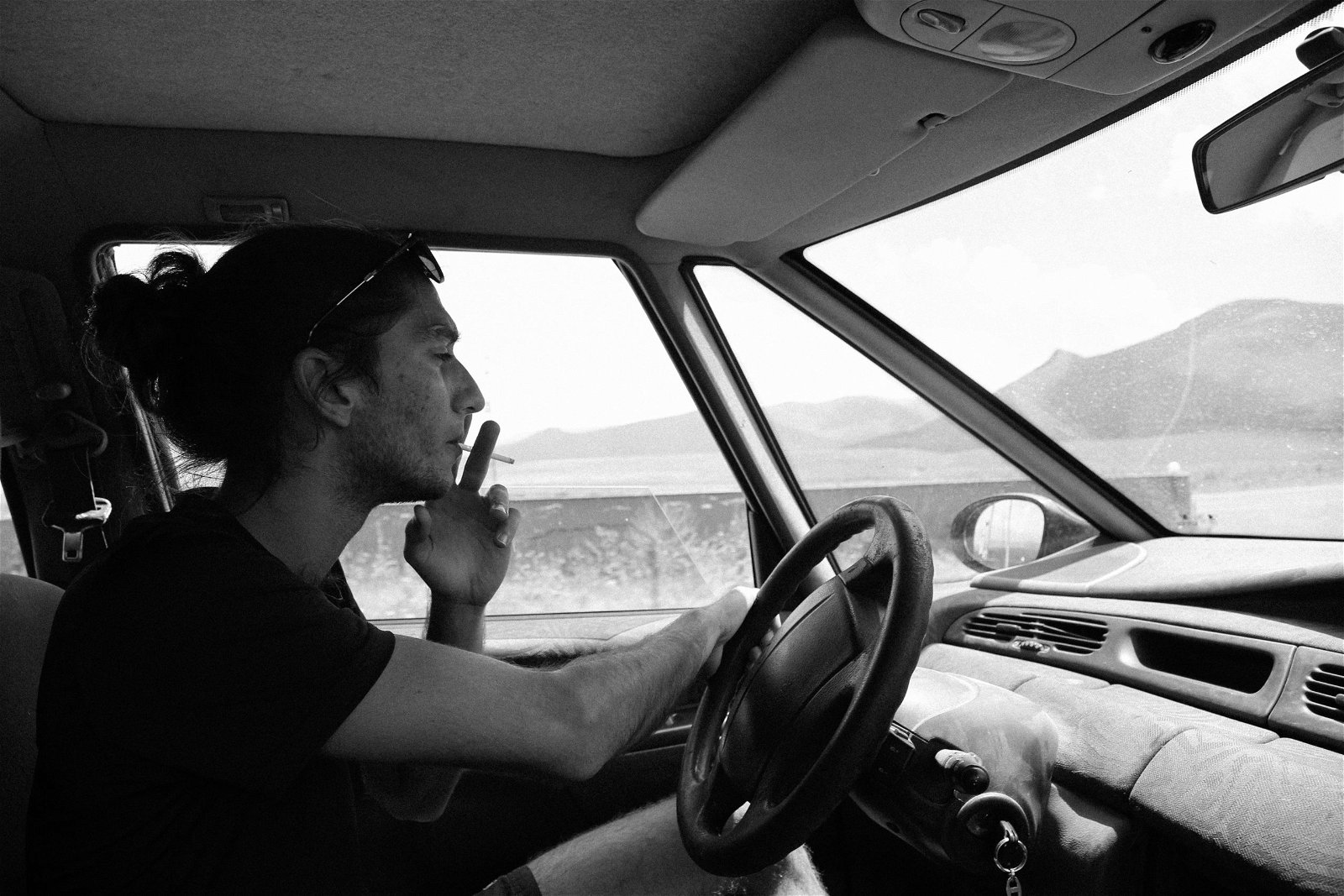
As we continued our road trip and made our way further south, we began to understand the consequences of the war. Five minutes after we left Goris, we began to see military personnel, both Armenian and Russian, dotting the road all the way to Kapan. For the next 15 minutes as we passed the infamous billboard that apparently welcomed us to Azerbaijan, we saw more Azeri flags than we had seen Armenian ones during the first four hours of our trip. It was both heartbreaking and confusing, frightening and enraging. It was also a long 15 minutes where the road began to twist and turn on the slopes of the mountains where Karekin Njteh fought his most valiant battles. It was the type of road that I thought an old Renault minivan would want to avoid. It was the type of road that filled me with newfound respect to the Iranian truck drivers who, despite stepping all the way down on the gas pedal and driving as fast as they could, needed an immense amount of patience navigating roads and trails that are unforgiving to semi-trucks with a full load on their backs.
land is life.
Back when I lived in Jerusalem, as a child I would ask my father why there were so many Israeli and Palestinian flags everywhere. He would smirk and say “because they are insecure and afraid.” My father believed, perhaps with no real basis, that nations that have a tendency to put their flag everywhere, do it to give themselves a false sense of reassurance that the location of their planted flag is theirs to keep. Sadly, that feeling is exactly what I felt when we got to Kapan. After the war, as the borders were redrawn, two massive Armenian flags with huge crosses placed in the middle were erected on the surrounding mountains of Kapan. They were placed parallel to the new border—perhaps to boost our own national ego and to take pride in the fact that our flags were bigger and more beautiful than the ones we could see across the new border. Perhaps they were placed there to comfort the locals and ease their legitimate security concerns. Perhaps they were just put there to mark our territory and to accept the new realities.
After a short rest in Kapan, we continued to Meghri. The winding mountain roads were relentless all the way to our final destination. It was beautiful. The mountains were so majestic that I often truly could not believe they were ours. That a small tribe of unimportant people who shamefully did not have much to show for in the world, still have a country as beautiful as ours. Perhaps I am getting older and my thinking is becoming a bit more old fashioned. Perhaps the war simply jolted me out of the digital world that I was so used to. I do not know what it is, but as I was looking at the dense forests, the flowing rivers, the rocky mountain tops, the scorching sun, the blue skies, and everything else that makes up this land, I finally realized why, for thousands of years, nations have waged war to fight for the land they treasured. Because land is life.
As the sun began to set, we reached Meghri. Hidden in the mountains on the border with Iran, it was hot and humid. It was an eight hour drive that might have taken only three hours if it weren’t for the mountains. Meghri felt so remote and distant that I made a distasteful comment of saying that if something were to happen, the Filipino army will get here before we Armenians do. On the other hand, I must say that I also felt immense pride. My small country felt big and endless, and with it the possibilities to build and prosper felt big and endless.
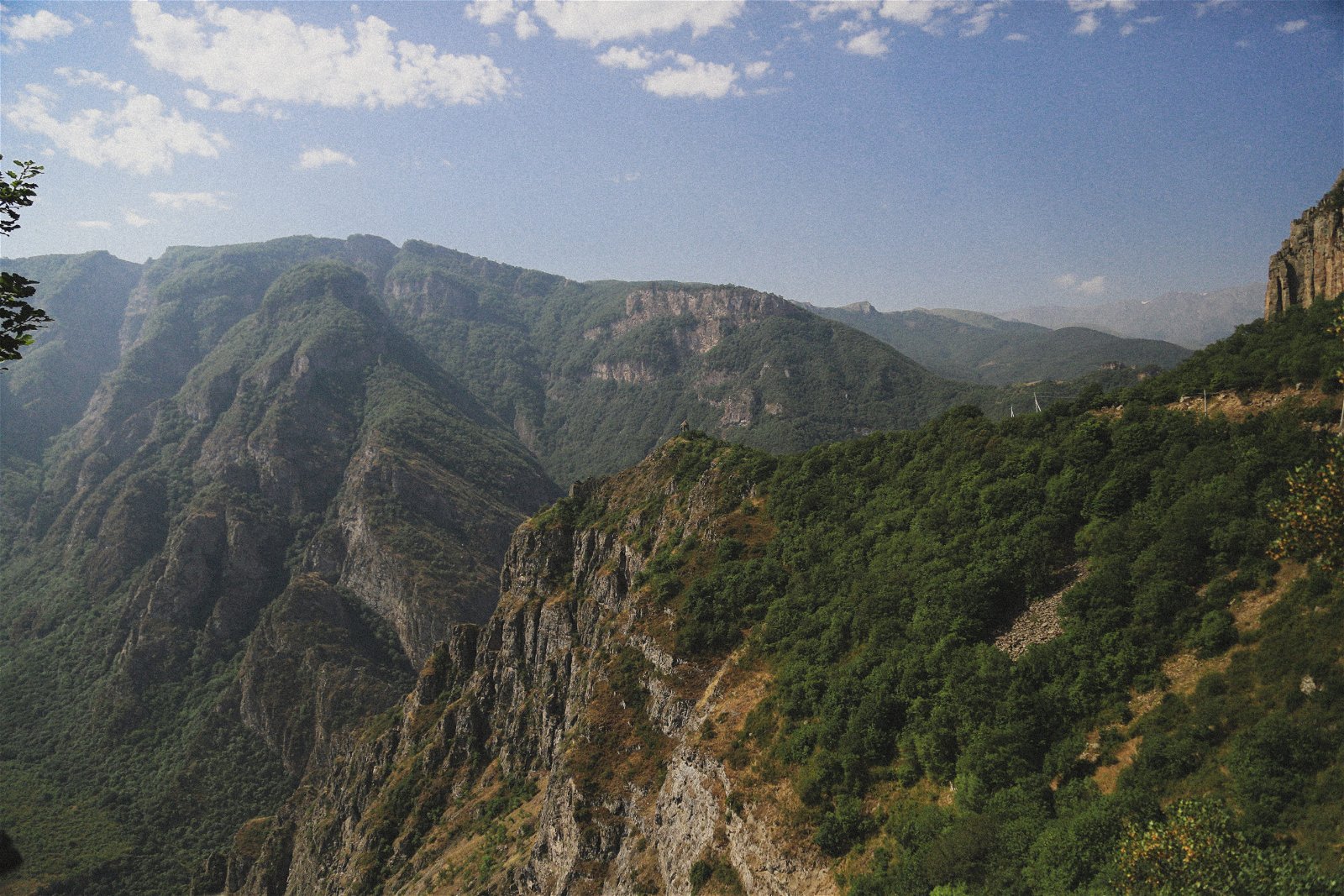
Before we checked into our guest house, we quickly drove all the way to the Arax River, only to find out that the Armenian side does not have access to the river itself. Yet again, as an Armenian I felt like I was forced to stare at what is mine, from afar from behind a fence, in melancholy. The five of us were standing at a hilltop overlooking the calm river. There was just enough sand and dust in the air to thoroughly convince us that the other side of the fence really is the start of the Middle East.
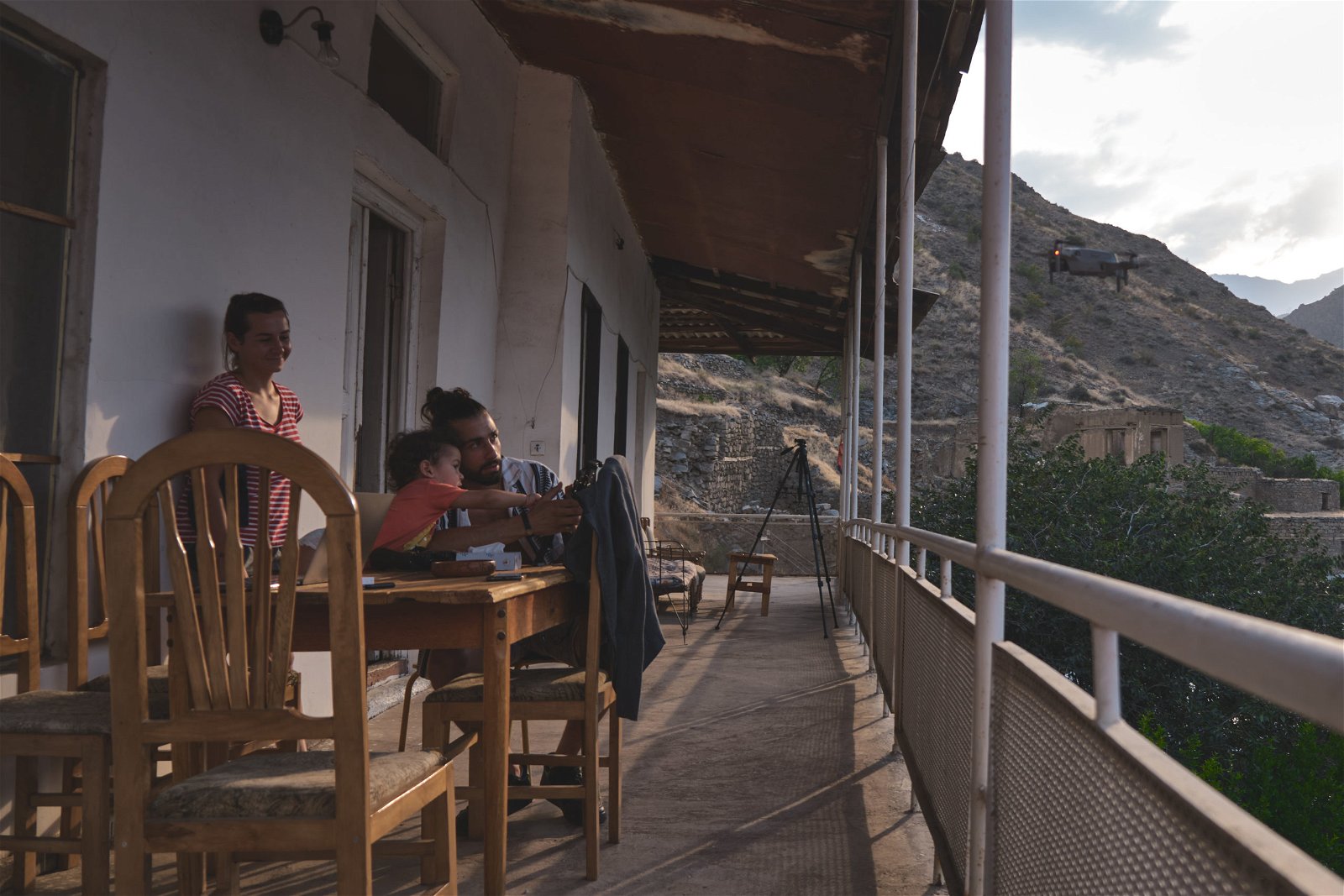
Our guest house was built on the side of the mountain overlooking Meghri. Setrag’s skills driving a manual transmission car were no match for the unbelievably narrow and steep roads that led us there. Sipan, born and bred in Europe, needed to take the wheel. We were eventually greeted by the smile of a beautiful young boy in diapers gifted with boundless energy and curiosity. His name was Khoren. We all sat on the balcony and enjoyed the fantastic view of the entire town. As the sun finally set and the stars appeared in the darkening night sky, I took it all in. I finally made it to Meghri. To another gem in Armenia. To another place I feel responsible for. To another place we will fight to protect with all our nerves and sinew. To another place we will love and cherish. We will do all this for the nation and for Khoren.
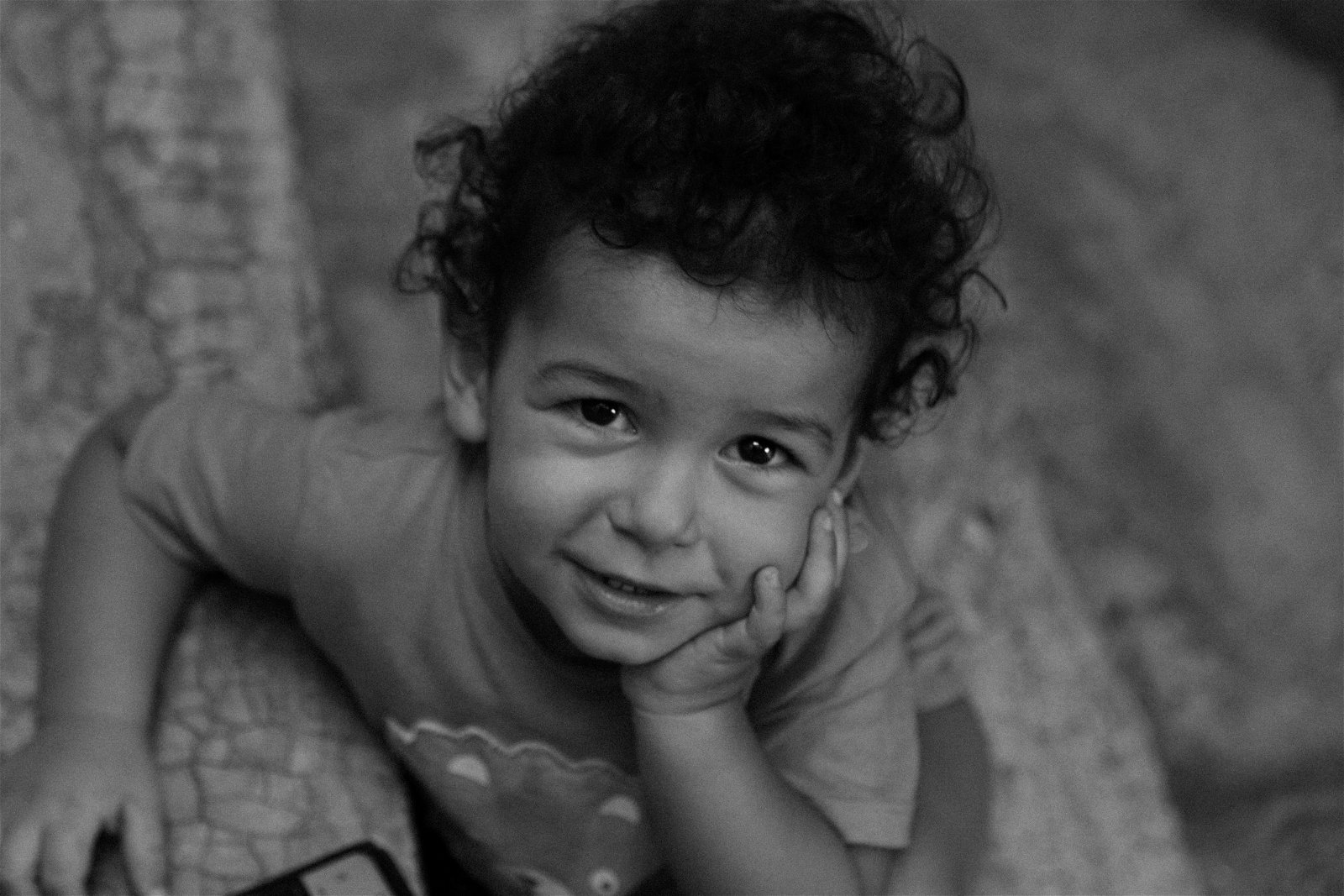


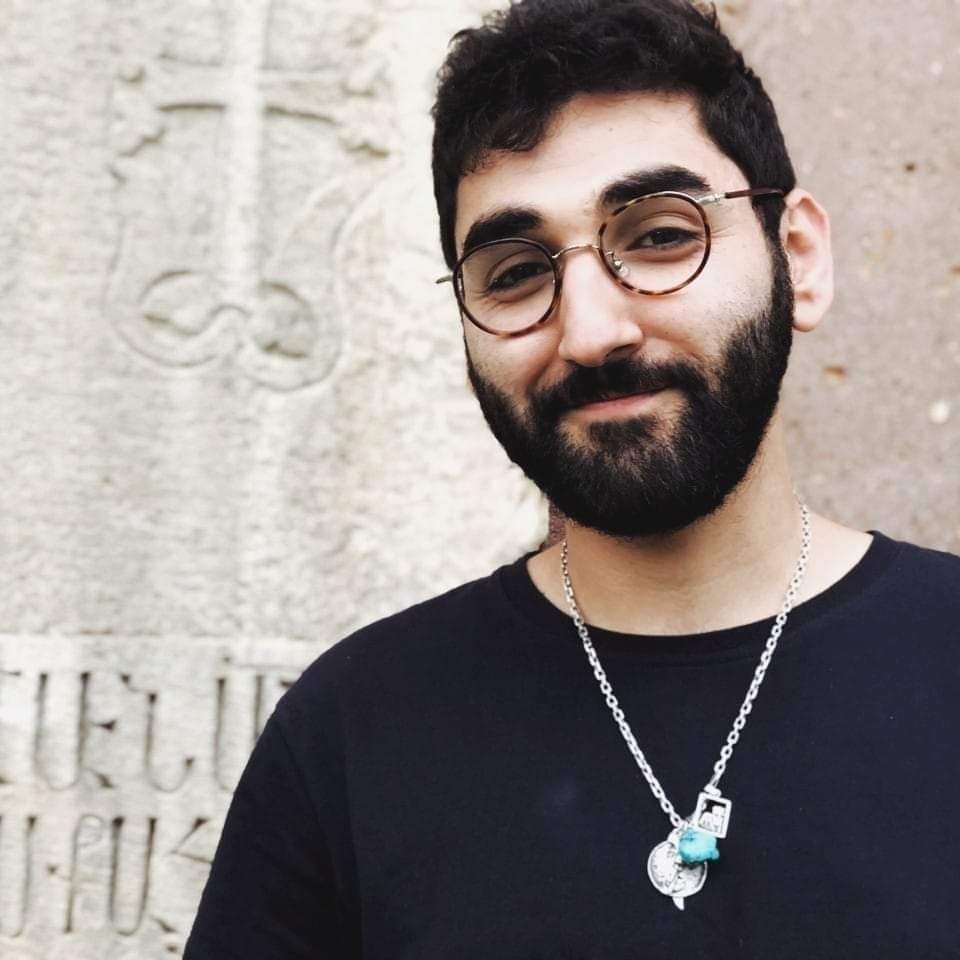
Baron Krikor thank you you made my day. I appreciate every word you wrote. I live in Portland, Oregon, USA, over 35 years from Aleppo Syria planning, semi retired and moved to Armenia